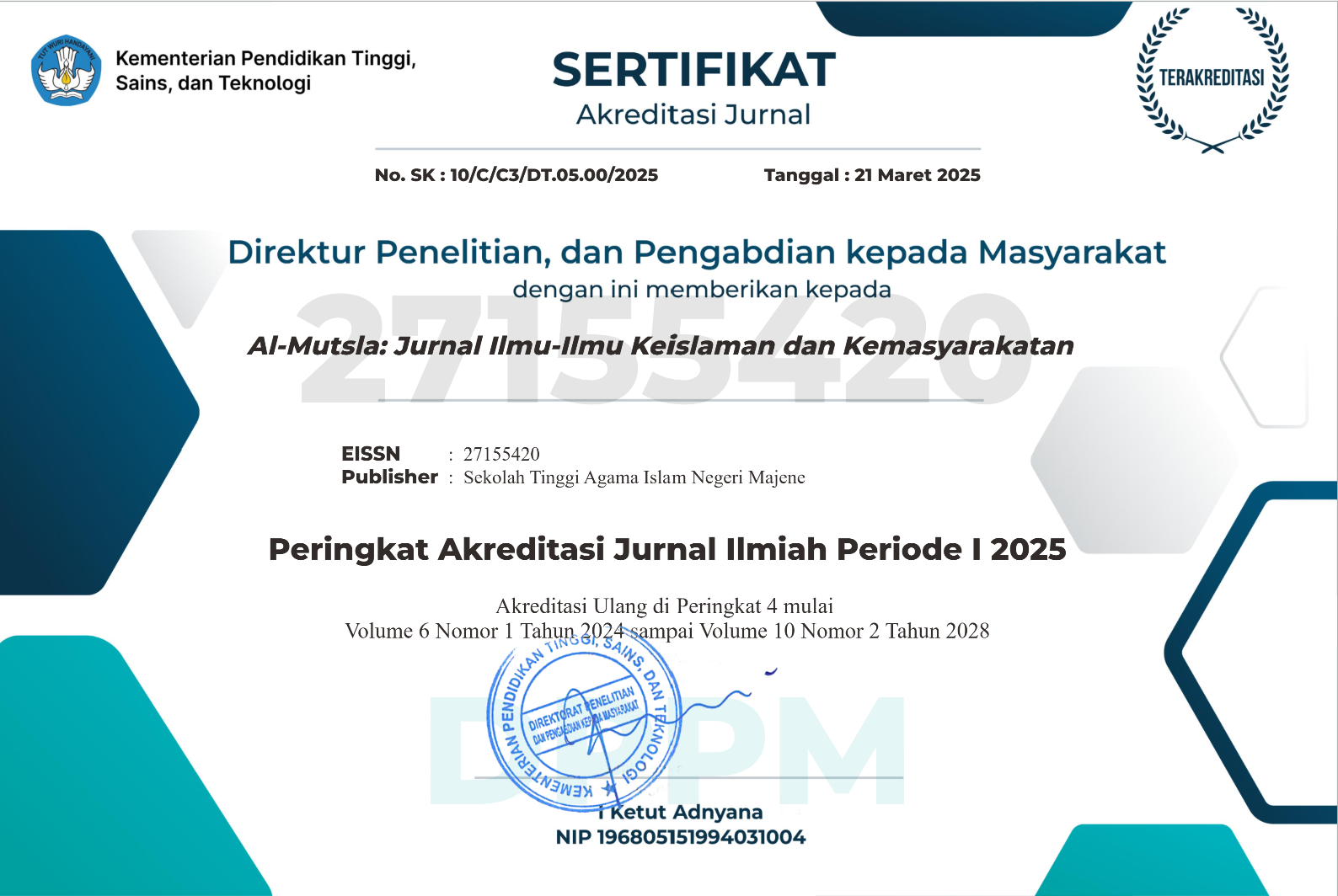Pluralism Theology of Nurcholis Madjid
DOI:
https://doi.org/10.46870/jstain.v5i1.451Keywords:
Nurcholis Madjid, pluralismAbstract
Pluralism is an understanding of mutual respect and understanding of differences in people's lives. Nurcholish Madjid's thoughts are considered relevant for discussion. As a figure to be reckoned with in Indonesia, his existence is considered to represent the rise of reform thinking in the archipelago. His thoughts on pluralism are considered a necessity associated with the condition of religious communities in Indonesia. The statement is based on the Indonesian population's condition of religious pluralism. If the pluralism of religions adhered to is not glued together with a pluralistic perspective, then the plurality of religions has the potential to trigger conflict. This research aims to find out the thoughts of Kalam Nurcholish Madjid on Pluralism. The method used is literature study by taking references from various sources such as printed and digital books, as well as research-related journals. The results of the study show that there are three approaches used by Nurcholis Madjid in formulating the concept of Pluralism, namely first, the Tawheed approach, namely the return of human dignity and status back to its position as a creature of Allah. Humans look up "up" only to God, to fellow human beings must look in a series of equality. Second, the Philological Approach, namely the redefinition of the meaning of Islam or more precisely the expansion of the definition of Islam as an attitude of surrender, submission, and obedience to God Almighty. The third is the Historical Approach, which is the value or spirit contained in that history. In this case, every adherent of religion needs to take as an example the values of openness of the people of Medina at that time, not to take the form of the government of the Prophet Muhammad in Medina to be applied today.
Downloads
References
B. Hasan, Career Maturity of Indians Adolescents as A Function of Self Concept, Vocational Aspiration and Gender, Journal of the Indian Academy of Applied Psychology. No. 2 Vol. 32 February 2006.
Healy, C. C. Career Development Counceling Through The Life Stage. Boston: Allyn & Bacon, 1982.
Hurlock, Elizabeth B. Psikologi Perkembangan : Suatu Pendekatan Sepanjang Rentang Kehidupan. Jakarta: Erlangga, 1980.
Monks, F.J. Psikologi Perkembangan. Yogyakarta: Gadjah Mada Press, 1998.
Mulyatiningsih, Rudi, dkk. Bimbingan Pribadi-Sosial, Belajar dan Karier. Jakarta: Grasindo, 2004.
Munandar, Utami. Mengembangkan Bakat dan Kreatifitas Anak. Jakarta: Gramedia, 1992.
Nurdin. Peningkatan Sumber Daya Manusia melalui Pendidikan Islam. Dinamika Ilmu, Vol. 11 No. 1, 2011
Richard, George, et.al, Career maturity of Students in Accelerated Verus Traditional Programs, The Career Development Quarterly, Vol.56 2 Desember 2006.
Riduwan dan Akdon, Rumus dan Data dalam Analisis Statistika, Bandung: Alfabeta, 2007.
Savickas, M.L. A Developmental Perspective on Vocational Behavior: Career Pattern, Salience, and Themes. International Journal for Educational and Vocational Guidance, 1, 2001.
Sharf, Richard S. Applying Career Development Theory To Counseling. California: Books/Cole Publishing Company, 1992.
Sharf, Richard S. Applying of Counseling Theories. New York: Mc. Milan, 1993.
Sukardi, Dewa Ketut. Bimbingan Karier di Sekolah-sekolah. Jakarta: Ghalia Indoneisia, 1994.
Super, D.E. et al. Vocational development: A framework for research. New York: Teacher Collage, Columbia University Bureau of Publications, 1957.
Winkel, W.S. Bimbingan dan Konseling di Institusi Pendidikan. Jakarta: PT. Grasindo, 1991.
Winkel, WS. dan Sri Hastuti, Bimbingan dan Konseling di Institusi Pendidikan. Yogyakarta: media Abadi, 2006.
Downloads
Published
How to Cite
Issue
Section
License
Copyright (c) 2023 AL-MUTSLA

This work is licensed under a Creative Commons Attribution-NonCommercial 4.0 International License.










